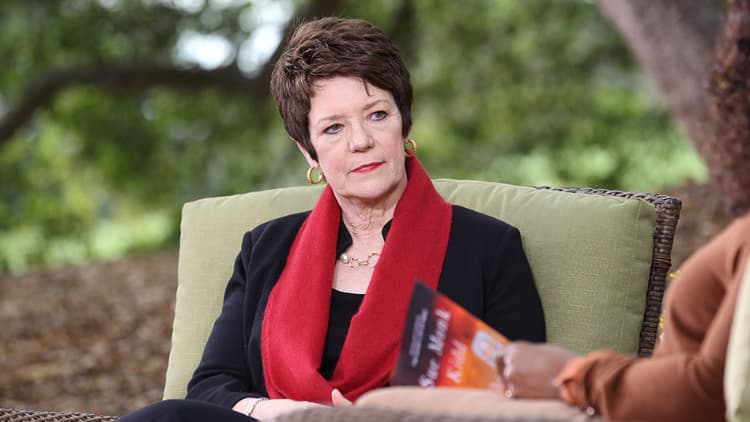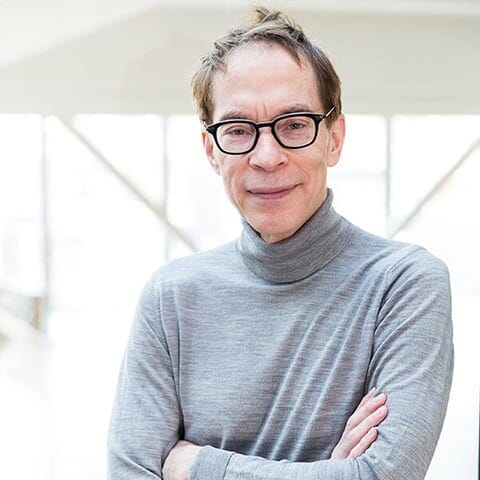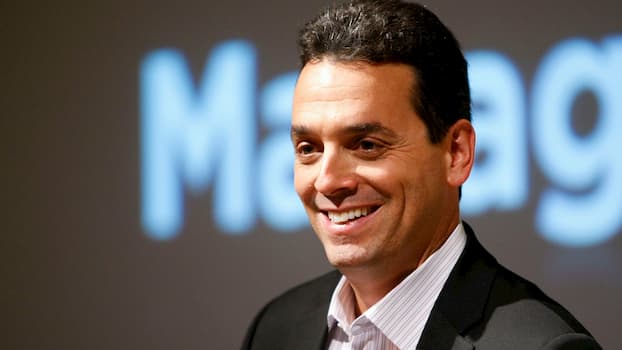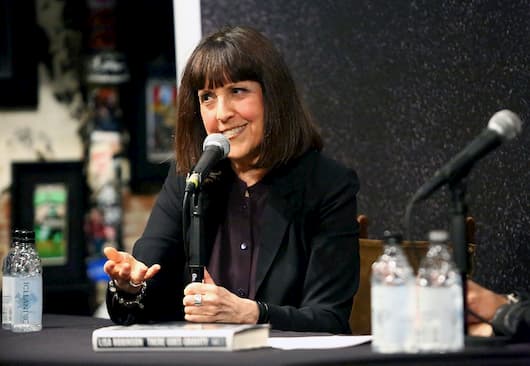Kim Stanley Robinson Biography
Kim Stanley Robinson is an American writer of science fiction. He has published nineteen novels and numerous short stories but is best known for his Mars trilogy. His work has been translated into 24 languages. Many of his novels and stories have ecological, cultural, and political themes running through them and feature scientists as heroes.
He won numerous awards, including the Hugo Award for Best Novel, the Nebula Award for Best Novel and the World Fantasy Award.
Kim Stanley Robinson Age
Kim Stanley Robinson was born on March 23, 1952, in Waukegan, Illinois, United States. Kim Stanley Robinson is 67 years old as of 2018.
Kim Stanley Robinson Education
In 1974, Kim Stanley Robinson earned a B.A. in literature from the University of California, San Diego, and in 1975, he earned an M.A. in English from Boston University. In 1982 he earned a Ph.D. in English from the UC San Diego. His initial Ph.D. advisor was a literary critic and Marxist scholar, Fredric Jameson, who told Robinson to read works by Philip K. Dick. Jameson described Dick to Robinson as “the greatest living American writer.” In 1978, he moved to Davis, California to take a break from his graduate studies at UC San Diego.
Kim Stanley Robinson Image
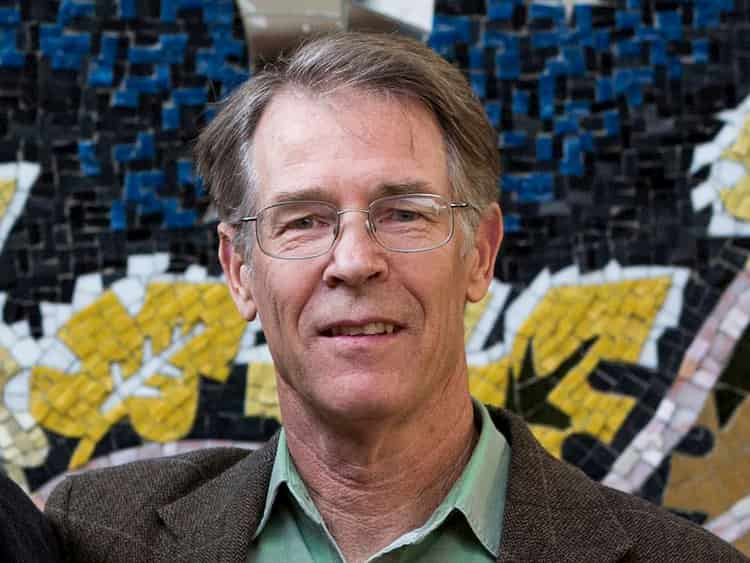
Kim Stanley Robinson writer of science fiction|Author
Kim Stanley Robinson moved to Southern California where he officially started his work as an author and science fiction writer. During this time he worked as a bookseller for Orpheus Books. He also taught freshman composition and other courses at the University of California, Davis. Robinson’s work has been labeled by The Atlantic as “the gold-standard of realistic, and highly literary, science-fiction writing.” According to an article in The New Yorker, Robinson is “generally acknowledged as one of the greatest living science-fiction writers.”
His doctoral thesis, include The Novels of Philip K. Dick, which were published in 1984 and a hardcover version was published by UMI Research Press. In the 1980s Robinson also spent time with a National Science Foundation team at a research base in Antarctica. In 2008, Time Magazine named Robinson a “Hero of the Environment” for his optimistic focus on the future. In 2009, he was an instructor at the Clarion Workshop. In 2010, he was the guest of honor at the 68th World Science Fiction Convention, held in Melbourne, Australia.
In April 2011, he presented at the second annual Rethinking Capitalism conference, held at the University of California, Santa Cruz. Among other points made, his talk addressed the cyclical nature of capitalism. He was then appointed as Muir Environmental Fellow in 2011 by the John Muir College, University of California San Diego.
Nature and culture
Sheldon Brown described Robinson’s novels as ways to explore how nature and culture continuously reformulate one another; Three Californias Trilogy as California in the future; Washington DC undergoing the impact of climate change in the Science in the Capital series; or Mars as a stand-in for Earth in the Mars trilogy to think about re-engineering on a global scale, both social and natural conditions.
Ecological sustainability
Virtually all of Robinson’s novels have an ecological component; sustainability is one of his primary themes (a strong contender for the primary theme would be the nature of a plausible utopia.) The Orange County trilogy is about the way in which the technological intersects with the natural, highlighting the importance of keeping the two in balance.
In the Mars trilogy, one of the principal divisions among the population of Mars is based on dissenting views on terraforming. Colonists debate whether or not the barren Martian landscape has a similar ecological or spiritual value when compared with a living ecosphere like piles of earth. Forty Signs of Rain has an entirely ecological thrust, taking global warming for its principal subject.
Economic and social justice
The author speaking at the Bay Area Anarchist Bookfair. His work often explores alternatives to modern capitalism. In the Mars trilogy, it is argued that capitalism is an outgrowth of feudalism, which could be replaced in the future by a more democratic economic system. Worker ownership and cooperatives figure prominently in Green Mars and Blue Mars as replacements for traditional corporations.
The Orange County trilogy explores similar arrangements; Pacific Edge includes the idea of attacking the legal framework behind corporate domination to promote social egalitarianism. Tim Kreider writes in the New Yorker that Robinson may be our greatest political novelist and describes how Robinson uses the Mars trilogy as a template for a credible utopia.
Robinson’s work often portrays characters struggling to preserve and enhance the world around them in an environment characterized by individualism and entrepreneurialism, often facing the political and economic authoritarianism of corporate power acting in this environment. Robinson has been described as anti-capitalist, and his work often portrays a form of frontier capitalism that promotes egalitarian ideals that closely resemble socialist systems, but faced with a capitalism that is maintained by entrenched hegemonic corporations.
In particular, his Martian Constitution draws upon social democratic ideals explicitly emphasizing a community-participation element in political and economic life. Robinson’s works often portray the worlds of tomorrow in a manner similar to the mythologized American Western frontier, showing a sentimental affection for the freedom and wildness of the frontier. This aesthetic includes a preoccupation with competing models of political and economic organization.
The environmental, economic, and social themes in Robinson’s oeuvre stand in marked contrast to the right-libertarian science fiction prevalent in much of the genre (Robert A. Heinlein, Poul Anderson, Larry Niven, and Jerry Pournelle being prominent examples), and his work has been called the most successful attempt to reach a mass audience with a left wing and anti-capitalist utopian vision since Ursula K. Le Guin’s 1974 novel, The Dispossessed.
Scientists as heroes
Robinson’s work often features scientists and heroes. They are portrayed in a mundane way compared to most work featuring scientists: rather than being adventurers or action heroes, Robinson’s scientists become critically important because of research discoveries, networking, and collaboration with other scientists, political lobbying, or becoming public figures. Robinson captures the joy of scientists as they work at something they care about.
The Mars trilogy and The Years of Rice and Salt rely heavily on the idea that scientists must take responsibility for ensuring public understanding and responsible use of their discoveries. Robinson’s scientists often emerge as the best people to direct public policy on important environmental and technological questions, of which politicians are often ignorant.
Climate change and global warming
In 2017, in the novel New York 2140 Robinson explored the themes of climate change and global warming, setting the novel in the year 2140 when the New York City he imagines is beset by a 50-foot sea level rise that half-submerges the city.
Kim Stanley Robinson Books|Novels
- Red Mars 1992
- Visions, Ventures, Escape Velocities: A Collection of Space Futures 2017
- Drowned Worlds 2016
- Some of the Best from Tor.com: 2015: A Tor.Com Original 2016
- Oral Argument: A Tor.Com Original 2015
- Metamorphosis 2015
- Two Thousand Three Hundred and Twelve 2012
- Green Earth 2015
- Shaman (novel) 2013
- Sixty Days and Counting 2007
- The Martians 1999
Kim Stanley Robinson New book
- Red Moon
2018 - New York 2140
2017 - Visions, Ventures, Escape Velocities: A Collection of Space Futures
2017
Kim Stanley Robinson Quotes
- “It was that sort of sleep in which you wake every hour and think to yourself that you have not been sleeping at all; you can remember dreams that are like reflections, daytime thinking slightly warped.”
- “That’s libertarians for you — anarchists who want police protection from their slaves.”
- “You can’t get any movement larger than five people without including at least one fucking idiot.”
- “Economics was like psychology, a pseudoscience trying to hide that fact with intense theoretical hyper elaboration. And gross domestic product was one of those unfortunate measurement concepts, like inches or the British thermal unit, that ought to have been retired long before.”
- “We all have secret lives. The life of excretion; the world of inappropriate sexual fantasies; our real hopes, our terror of death; our experience of shame; the world of pain; and our dreams. No one else knows these lives. Consciousness is solitary. Each person lives in that bubble universe that rests under the skull, alone.”
Kim Stanley Robinson Twitter
Kim Stanley Robinson Youtube Interview
About InformationCradle Editorial Staff
This Article is produced by InformationCradle Editorial Staff which is a team of expert writers and editors led by Josphat Gachie and trusted by millions of readers worldwide.
We endeavor to keep our content True, Accurate, Correct, Original and Up to Date. For complain, correction or an update, please send us an email to informationcradle@gmail.com. We promise to take corrective measures to the best of our abilities.

